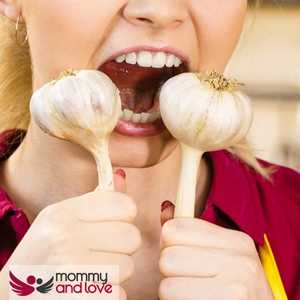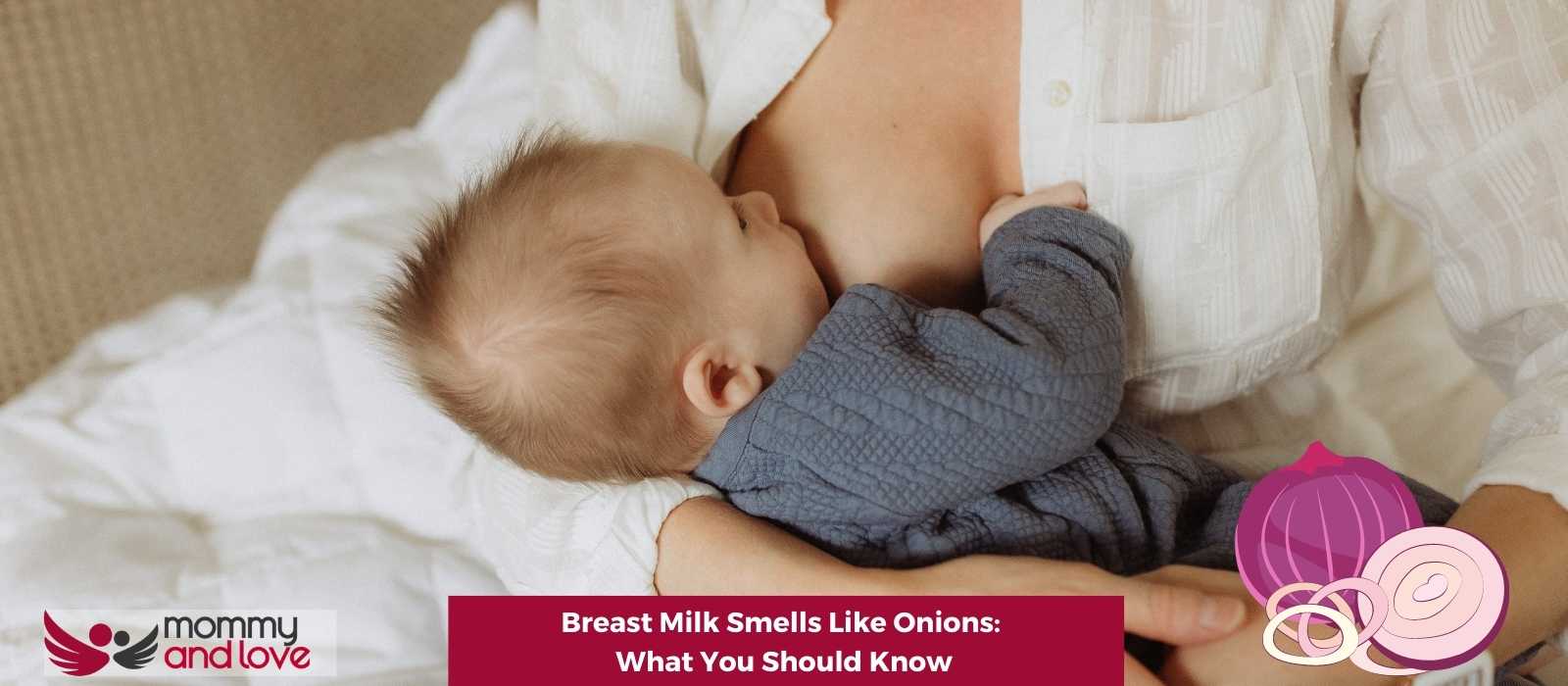Do you know what breast milk smells like? If not, you may be surprised to find out that it has a strong odor. This is due to the presence of compounds called thioethers, which give breast milk its characteristic smell. While this smell may be off-putting to some people, it is actually quite normal and nothing to worry about.
Onions, garlic, and other spices are examples of foods that might alter the scent of breast milk. Breast milk smells like onions due to the presence of apocrine glands found in the nipples.
What Should Breast Milk Smell Like?
According to most mothers, breast milk smells and tastes like cow’s milk, but is milder and sweeter. However, some mothers report that their breast milk has a strong odor.
This is usually due to the fact that the mother has an overactive let-down reflex or her diet includes foods that can cause strong odors in her breast milk.
In most cases, there is no need to worry about the smell of human milk. If you are concerned about the smell of your breast milk, talk to your doctor or a medical professional. They can help you determine if there is a reason for concern and offer suggestions on how to improve the smell of your breast milk.
Interestingly, the amniotic fluid has similar flavors and smells to your fresh milk.
Why Does My Fresh Breast Milk Smell Sour?

We all know that breast milk is the best food for our babies. It is packed with nutrients and antibodies that help keep our little ones healthy. But sometimes, breast milk can smell and taste funny.
Rancid fats and chemical oxidation are usually the culprits behind sour-smelling breast milk.
Changes to your diet can help fix this problem. Avoiding food that is high in fat, such as fried foods, can help. Eating more fresh fruits and vegetables can also help improve the sour or soapy smell and taste of your expressed milk or pumped breast milk.
What Is the Smell of Spoiled Breast Milk?
Rancid or very sour, that’s the smell of spoiled breast milk. And it’s not a pleasant smell, to say the least. If you’re wondering how you can tell if your breast milk has gone bad, here are a few signs to look for:
- Yellow or greenish tint
- Lumpy or curdled
- Have a sour, rancid smell
If you notice any of these signs, it’s best to discard the milk. And if you’re ever in doubt, err on the side of caution and throw it out. After all, you don’t want to risk making your little one sick.
Why Does Breast Milk Smell Like Onion, Fish, Eggs, or Garlic?
First-time moms might find their breastmilk smell strange. The reason breast milk smells like onion, fish, eggs, or garlic is due to the apocrine glands which are the same glands in the groin and armpits. These are sweat glands that are found in the breast tissue and secrete oils and sweat into the ducts of the breasts. The combination of these fluids can sometimes cause breast milk to have a strong onion-like smell. However, there’s nothing to worry about if your breast milk smells funny, and doesn’t mean that the milk is bad.
One possibility is that the mother has eaten foods with strong odors that have transferred into her breast milk. Another possibility is that the mother has an infection or other medical condition that is causing her breast milk to have a funny or sour smell.
It’s also worth noting that not all mothers and babies find their mother’s breastmilk to have an unpleasant smell. In fact, some mothers and babies find it to have a sweet or even neutral smell. Generally, there’s nothing to worry about if your breast milk smell like onions.
What Affects the Taste, Smell, or Appearance of Breast Milk?

There are a few things that can affect breast milk taste, smell, or appearance. Certain foods and medications can change the way your breast milk tastes or smells.
If you eat a lot of garlic, for example, your breast milk may have a strong garlic flavor.
Certain medications can also change the color or consistency of your breast milk.
Your storage techniques might also affect how your breast milk smell and tastes.
Conclusion
Although breast milk typically smells sweet, some mothers report that their milk has a pungent odor. This smell is often caused by apocrine glands, certain foods, and medications. If your milk smells like onions, there’s no need to worry – it’s still safe for your baby.
FAQ
Is It Possible to Smell Metallic While Breastfeeding?
It is not uncommon for many moms to experience a range of different smells while breastfeeding. While this is not a problem for formula-fed babies, most babies might reject their mother’s milk if they don’t like the new flavor. However, if you notice that your breast milk smells soapy or metallic, this could be an indication that something is wrong.
There are a number of reasons why your breast milk might smell metallic. One possibility is that you have a high level of lipase activity. Lipase is an enzyme that helps to break down fat. When there is too much lipase activity, fat is broken down too quickly, which can cause breast milk to taste or smell soapy or metallic.
Is Breastmilk Bad if Smells?
Oxidation can cause human milk to smell sour or rancid. These changes might occur quickly after the milk is expressed or after it has been frozen and subsequently defrosted.
However, these changes do not make the milk unsafe for your baby. If you are concerned about the taste or odor of your breastmilk, you can try storing it in a well-sealed container in the refrigerator. You can also try using breastmilk storage bags that are designed to prevent oxidation.
You should still be vigilant to avoid feeding your baby bad milk.
How Can You Tell if You Have High Lipase Breast Milk?
Lipase is present in breast milk. It helps break down fatty acids, fatty particles, and fat-soluble nutrients so that they become available to your baby.
Breast milk rich in lipase enzyme may smell soapy or sour. It may also look lumpy or curdled. High lipase breast milk is still safe to drink, but some breastfed babies may refuse to drink it because of the taste.
If your baby refuses to drink high lipase breast milk, you can try expressed milk that has been frozen for 24 hours. The freezing process will often reduce the lipase activity.
If you have high lipase breast milk and your baby is not affected by it, there is no need to do anything. Just keep breastfeeding as usual.
How Do You Avoid High Lipase in Breast Milk?
There is nothing you can do to avoid excess lipase levels in your milk. It’s not something you’re doing incorrectly. It is primarily hereditary and might differ from baby to baby. If you have unusually high lipase levels, it is important to deactivate the lipase before you feed it to your child especially if your kid is sensitive to the soapy smell and has already developed his first taste preferences.
You can deactivate the lipase by scalding the milk. Scalding the milk essentially means heating it until just before it boils. You can do this by heating the milk until bubbles form on the stovetop or in the microwave. Once you’ve scalded the milk, let it cool before storing it or giving it to your baby.
If the fat and water have separated, the fats build up at the top while the water component falls to the bottom. Give your breastmilk a gentle swirl. Double check to make sure that the separated components have combined before you feed it to your baby.
You can also make sure that your breast pump equipment and storage containers are clean and dry. Additionally, reduce your intake of rancid-smelling fats such as fish oil supplements and follow proper storage guidelines. Finally, ensure that your milk is chilled as soon as possible after pumping.
Track the changes in your breastmilk. It can change quickly in a matter of hours or it might take longer than a few days.
How to Get Rid of Body Odor While Breastfeeding
Many mothers may have noticed an increase in body odor. Here are some tips to help you get rid of that unwanted body odor:
- Shower regularly. This will help get rid of any sweat or bacteria that may be causing the body odor.
- Avoid certain foods. Certain foods can cause your body odor to become stronger. These include foods that are high in sulfur, such as cabbage, broccoli, and Brussels sprouts.
- Keep yourself hydrated. Drink plenty of water throughout the day to keep your body flushed out and free of toxins.
- Apply an unscented deodorant. This will help to mask the body odor while you’re breastfeeding.
- Avoid alcohol. Alcohol can make body odor worse, so it’s best to avoid it if you’re breastfeeding.
By following these tips, you should be able to get rid of body odor while breastfeeding.

This article was written by Sandra Baker – full time writer and the mother of four amazing kids (including twins!)
She’s also a breastfeeding counselor and has spent years helping new parents learn how to care for their children. When she’s not writing or caring for her children, Sandra likes to spend time reading and taking walks with her husband.




